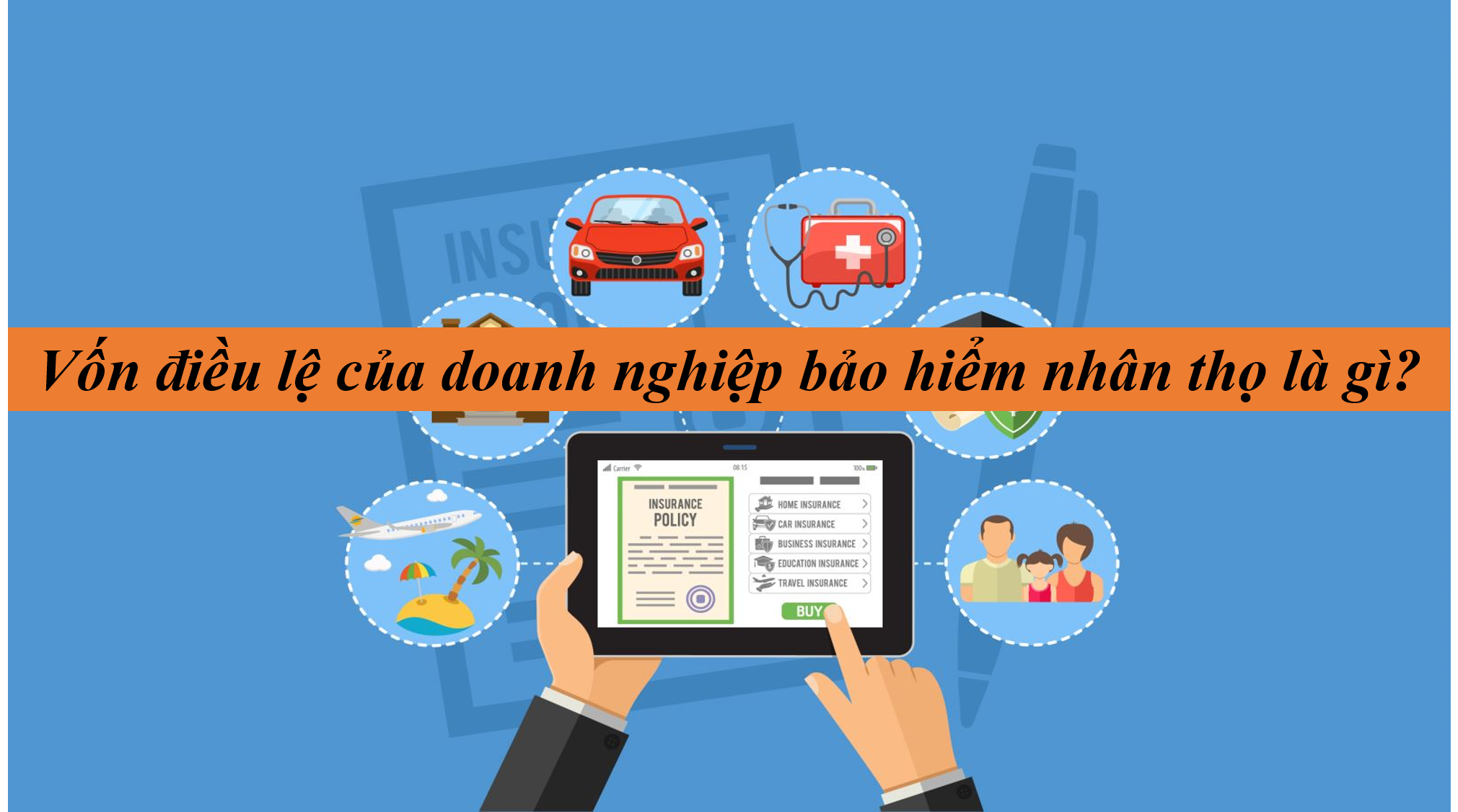 Tìm kiếm
Tìm kiếm
Chương I Luật kinh doanh bảo hiểm 2022: Những quy định chung
| Số hiệu: | 08/2022/QH15 | Loại văn bản: | Luật |
| Nơi ban hành: | Quốc hội | Người ký: | Vương Đình Huệ |
| Ngày ban hành: | 16/06/2022 | Ngày hiệu lực: | 01/01/2023 |
| Ngày công báo: | 17/07/2022 | Số công báo: | Từ số 575 đến số 576 |
| Lĩnh vực: | Doanh nghiệp, Thương mại, Bảo hiểm | Tình trạng: | Còn hiệu lực |
TÓM TẮT VĂN BẢN
Văn bản tiếng việt
Văn bản tiếng anh
1. Luật này quy định về tổ chức và hoạt động kinh doanh bảo hiểm; quyền và nghĩa vụ của tổ chức, cá nhân tham gia bảo hiểm; quản lý nhà nước về hoạt động kinh doanh bảo hiểm.
2. Luật này không áp dụng đối với bảo hiểm xã hội, bảo hiểm y tế, bảo hiểm tiền gửi và các loại bảo hiểm khác do Nhà nước thực hiện không mang tính kinh doanh.
1. Doanh nghiệp bảo hiểm, doanh nghiệp tái bảo hiểm, đại lý bảo hiểm, doanh nghiệp môi giới bảo hiểm, tổ chức, cá nhân cung cấp dịch vụ phụ trợ bảo hiểm, tổ chức tương hỗ cung cấp bảo hiểm vi mô.
2. Chi nhánh doanh nghiệp bảo hiểm phi nhân thọ nước ngoài, chi nhánh doanh nghiệp tái bảo hiểm nước ngoài (sau đây gọi là chi nhánh nước ngoài tại Việt Nam).
3. Văn phòng đại diện của doanh nghiệp bảo hiểm nước ngoài, doanh nghiệp tái bảo hiểm nước ngoài, doanh nghiệp môi giới bảo hiểm nước ngoài, tập đoàn tài chính, bảo hiểm nước ngoài tại Việt Nam (sau đây gọi là văn phòng đại diện nước ngoài tại Việt Nam).
4. Bên mua bảo hiểm, người được bảo hiểm, người thụ hưởng.
5. Cơ quan quản lý nhà nước về hoạt động kinh doanh bảo hiểm.
6. Tổ chức, cá nhân có liên quan đến hoạt động kinh doanh bảo hiểm.
1. Trường hợp luật khác ban hành sau ngày Luật này có hiệu lực thi hành cần quy định khác với quy định của Luật này về hợp đồng bảo hiểm, thành lập, tổ chức hoạt động, hoạt động nghiệp vụ, tài chính, hạch toán kế toán và báo cáo tài chính, khả năng thanh toán và biện pháp can thiệp đối với doanh nghiệp bảo hiểm, doanh nghiệp tái bảo hiểm, chi nhánh nước ngoài tại Việt Nam, tổ chức tương hỗ cung cấp bảo hiểm vi mô, doanh nghiệp môi giới bảo hiểm thì phải xác định cụ thể nội dung thực hiện hoặc không thực hiện theo quy định của Luật này.
2. Các bên tham gia hợp đồng bảo hiểm, tái bảo hiểm, môi giới bảo hiểm có thể thỏa thuận áp dụng tập quán quốc tế trong trường hợp có ít nhất một trong các bên tham gia là tổ chức, cá nhân nước ngoài hoặc các bên tham gia là tổ chức Việt Nam, công dân Việt Nam nhưng đối tượng bảo hiểm hoặc việc thực hiện hợp đồng ở nước ngoài. Nếu hậu quả của việc áp dụng tập quán quốc tế trái với các nguyên tắc cơ bản của pháp luật Việt Nam thì pháp luật Việt Nam được áp dụng.
Trong Luật này, các từ ngữ dưới đây được hiểu như sau:
1. Hoạt động kinh doanh bảo hiểm bao gồm kinh doanh bảo hiểm, kinh doanh tái bảo hiểm, nhượng tái bảo hiểm và các hoạt động có liên quan đến hoạt động kinh doanh bảo hiểm bao gồm đại lý bảo hiểm, môi giới bảo hiểm, dịch vụ phụ trợ bảo hiểm.
2. Kinh doanh bảo hiểm là hoạt động của doanh nghiệp bảo hiểm, chi nhánh doanh nghiệp bảo hiểm phi nhân thọ nước ngoài, tổ chức tương hỗ cung cấp bảo hiểm vi mô chấp nhận rủi ro của người được bảo hiểm, trên cơ sở bên mua bảo hiểm đóng phí bảo hiểm để doanh nghiệp bảo hiểm, chi nhánh doanh nghiệp bảo hiểm phi nhân thọ nước ngoài, tổ chức tương hỗ cung cấp bảo hiểm vi mô bồi thường, trả tiền bảo hiểm khi xảy ra sự kiện bảo hiểm theo thỏa thuận trong hợp đồng bảo hiểm.
3. Kinh doanh tái bảo hiểm là hoạt động của doanh nghiệp bảo hiểm, doanh nghiệp tái bảo hiểm, chi nhánh nước ngoài tại Việt Nam nhận một khoản phí tái bảo hiểm của doanh nghiệp bảo hiểm, doanh nghiệp tái bảo hiểm, chi nhánh nước ngoài tại Việt Nam khác, doanh nghiệp bảo hiểm nước ngoài, doanh nghiệp tái bảo hiểm nước ngoài, tổ chức bảo hiểm nước ngoài để cam kết bồi thường cho các trách nhiệm đã nhận bảo hiểm.
4. Nhượng tái bảo hiểm là hoạt động của doanh nghiệp bảo hiểm, doanh nghiệp tái bảo hiểm, chi nhánh nước ngoài tại Việt Nam chuyển giao một phần trách nhiệm đã nhận tái bảo hiểm cho doanh nghiệp bảo hiểm, doanh nghiệp tái bảo hiểm, chi nhánh nước ngoài tại Việt Nam khác, doanh nghiệp bảo hiểm nước ngoài, doanh nghiệp tái bảo hiểm nước ngoài, tổ chức bảo hiểm nước ngoài trên cơ sở thanh toán phí nhượng tái bảo hiểm.
5. Hoạt động đại lý bảo hiểm là một hoặc một số hoạt động theo ủy quyền của doanh nghiệp bảo hiểm, chi nhánh doanh nghiệp bảo hiểm phi nhân thọ nước ngoài, tổ chức tương hỗ cung cấp bảo hiểm vi mô, bao gồm: tư vấn sản phẩm bảo hiểm; giới thiệu sản phẩm bảo hiểm; chào bán sản phẩm bảo hiểm; thu xếp việc giao kết hợp đồng bảo hiểm; thu phí bảo hiểm; thu thập hồ sơ để phục vụ việc giải quyết bồi thường, trả tiền bảo hiểm.
6. Hoạt động môi giới bảo hiểm là hoạt động cung cấp thông tin, tư vấn cho bên mua bảo hiểm về loại hình bảo hiểm, sản phẩm bảo hiểm, chương trình bảo hiểm, điều kiện, điều khoản, phí bảo hiểm, doanh nghiệp bảo hiểm, doanh nghiệp tái bảo hiểm, chi nhánh nước ngoài tại Việt Nam; các hoạt động liên quan đến việc đàm phán, thu xếp giao kết và thực hiện hợp đồng bảo hiểm, tái bảo hiểm.
7. Dịch vụ phụ trợ bảo hiểm bao gồm tư vấn, đánh giá rủi ro bảo hiểm, tính toán bảo hiểm, giám định tổn thất bảo hiểm, hỗ trợ giải quyết bồi thường bảo hiểm. Dịch vụ phụ trợ bảo hiểm không bao gồm việc doanh nghiệp bảo hiểm, doanh nghiệp tái bảo hiểm, chi nhánh nước ngoài tại Việt Nam, tổ chức tương hỗ cung cấp bảo hiểm vi mô tự thực hiện để triển khai hoạt động kinh doanh bảo hiểm, kinh doanh tái bảo hiểm của chính tổ chức đó.
8. Tư vấn là hoạt động cung cấp dịch vụ tư vấn về chương trình bảo hiểm, sản phẩm bảo hiểm, quản trị rủi ro bảo hiểm, đề phòng, hạn chế tổn thất bảo hiểm.
9. Đánh giá rủi ro bảo hiểm là hoạt động nhận diện, phân loại, đánh giá tính chất và mức độ rủi ro, đánh giá việc quản trị rủi ro về con người, tài sản, trách nhiệm dân sự làm cơ sở tham gia bảo hiểm, tái bảo hiểm.
10. Tính toán bảo hiểm là hoạt động thu thập, phân tích số liệu thống kê, tính phí bảo hiểm, dự phòng nghiệp vụ, vốn, khả năng thanh toán, đánh giá kết quả hoạt động kinh doanh, xác định giá trị doanh nghiệp để bảo đảm an toàn tài chính của doanh nghiệp bảo hiểm, doanh nghiệp tái bảo hiểm, chi nhánh nước ngoài tại Việt Nam, tổ chức tương hỗ cung cấp bảo hiểm vi mô.
11. Giám định tổn thất bảo hiểm là hoạt động xác định hiện trạng, nguyên nhân, mức độ tổn thất và tính toán phân bổ trách nhiệm bồi thường tổn thất làm cơ sở giải quyết bồi thường bảo hiểm.
12. Hỗ trợ giải quyết bồi thường bảo hiểm là hoạt động hỗ trợ bên mua bảo hiểm, người được bảo hiểm, người thụ hưởng hoặc doanh nghiệp bảo hiểm, doanh nghiệp tái bảo hiểm, chi nhánh nước ngoài tại Việt Nam, tổ chức tương hỗ cung cấp bảo hiểm vi mô thực hiện các thủ tục giải quyết bồi thường, trả tiền bảo hiểm.
13. Bảo hiểm nhân thọ là loại hình bảo hiểm cho trường hợp người được bảo hiểm sống hoặc chết.
14. Bảo hiểm phi nhân thọ là loại hình bảo hiểm cho những thiệt hại về tài sản và những tổn thất khác hoặc trách nhiệm dân sự đối với người thứ ba.
15. Bảo hiểm sức khỏe là loại hình bảo hiểm cho trường hợp người được bảo hiểm bị thương tật, tai nạn, ốm đau, bệnh tật hoặc chăm sóc sức khỏe.
16. Hợp đồng bảo hiểm là sự thoả thuận giữa bên mua bảo hiểm và doanh nghiệp bảo hiểm, chi nhánh doanh nghiệp bảo hiểm phi nhân thọ nước ngoài, tổ chức tương hỗ cung cấp bảo hiểm vi mô, theo đó bên mua bảo hiểm phải đóng phí bảo hiểm, doanh nghiệp bảo hiểm, chi nhánh doanh nghiệp bảo hiểm phi nhân thọ nước ngoài, tổ chức tương hỗ cung cấp bảo hiểm vi mô phải bồi thường, trả tiền bảo hiểm theo thỏa thuận trong hợp đồng.
17. Doanh nghiệp bảo hiểm là doanh nghiệp được thành lập, tổ chức và hoạt động theo quy định của Luật này và luật khác có liên quan để kinh doanh bảo hiểm, kinh doanh tái bảo hiểm, nhượng tái bảo hiểm. Doanh nghiệp bảo hiểm bao gồm doanh nghiệp bảo hiểm nhân thọ, doanh nghiệp bảo hiểm phi nhân thọ, doanh nghiệp bảo hiểm sức khỏe.
18. Doanh nghiệp tái bảo hiểm là doanh nghiệp được thành lập, tổ chức và hoạt động theo quy định của Luật này và luật khác có liên quan để kinh doanh tái bảo hiểm, nhượng tái bảo hiểm.
19. Chi nhánh doanh nghiệp bảo hiểm phi nhân thọ nước ngoài là đơn vị phụ thuộc của doanh nghiệp bảo hiểm phi nhân thọ nước ngoài, không có tư cách pháp nhân, được doanh nghiệp bảo hiểm phi nhân thọ nước ngoài bảo đảm và chịu trách nhiệm về mọi nghĩa vụ, cam kết trong thời gian hoạt động tại Việt Nam.
20. Chi nhánh doanh nghiệp tái bảo hiểm nước ngoài là đơn vị phụ thuộc của doanh nghiệp tái bảo hiểm nước ngoài, không có tư cách pháp nhân, được doanh nghiệp tái bảo hiểm nước ngoài bảo đảm và chịu trách nhiệm về mọi nghĩa vụ, cam kết trong thời gian hoạt động tại Việt Nam.
21. Doanh nghiệp môi giới bảo hiểm là doanh nghiệp được thành lập, tổ chức và hoạt động theo quy định của Luật này và luật khác có liên quan để thực hiện các hoạt động môi giới bảo hiểm.
22. Bảo hiểm vi mô là bảo hiểm hướng tới các cá nhân, hộ gia đình có thu nhập thấp nhằm bảo vệ họ trước những rủi ro về tính mạng, sức khỏe và tài sản.
23. Tổ chức tương hỗ cung cấp bảo hiểm vi mô là tổ chức có tư cách pháp nhân, hạch toán độc lập, do các thành viên hoặc tổ chức đại diện thành viên thành lập để triển khai bảo hiểm vi mô không vì mục đích lợi nhuận nhằm tương trợ, giúp đỡ lẫn nhau giữa các thành viên tham gia bảo hiểm trên nguyên tắc tự nguyện, tự chủ tài chính và tự chịu trách nhiệm trước pháp luật trong phạm vi tài sản hình thành từ hoạt động bảo hiểm vi mô.
24. Bên mua bảo hiểm là tổ chức, cá nhân giao kết hợp đồng bảo hiểm với doanh nghiệp bảo hiểm, chi nhánh doanh nghiệp bảo hiểm phi nhân thọ nước ngoài, tổ chức tương hỗ cung cấp bảo hiểm vi mô và đóng phí bảo hiểm.
25. Người được bảo hiểm là tổ chức, cá nhân có tài sản, trách nhiệm dân sự, sức khỏe, tính mạng, nghĩa vụ hoặc lợi ích kinh tế được bảo hiểm theo hợp đồng bảo hiểm.
26. Người thụ hưởng là tổ chức, cá nhân được bên mua bảo hiểm hoặc người được bảo hiểm chỉ định để nhận tiền bảo hiểm theo thỏa thuận trong hợp đồng bảo hiểm.
27. Sự kiện bảo hiểm là sự kiện khách quan do các bên thỏa thuận hoặc pháp luật quy định mà khi sự kiện đó xảy ra thì doanh nghiệp bảo hiểm, chi nhánh doanh nghiệp bảo hiểm phi nhân thọ nước ngoài, tổ chức tương hỗ cung cấp bảo hiểm vi mô phải bồi thường, trả tiền bảo hiểm theo thỏa thuận trong hợp đồng bảo hiểm.
28. Phí bảo hiểm là khoản tiền mà bên mua bảo hiểm phải đóng cho doanh nghiệp bảo hiểm, chi nhánh doanh nghiệp bảo hiểm phi nhân thọ nước ngoài, tổ chức tương hỗ cung cấp bảo hiểm vi mô theo quy định của pháp luật hoặc do các bên thỏa thuận trong hợp đồng bảo hiểm.
29. Đồng bảo hiểm là trường hợp các doanh nghiệp bảo hiểm, chi nhánh doanh nghiệp bảo hiểm phi nhân thọ nước ngoài cùng thống nhất giao kết với bên mua bảo hiểm trên một hợp đồng bảo hiểm, trong đó các doanh nghiệp bảo hiểm, chi nhánh doanh nghiệp bảo hiểm phi nhân thọ nước ngoài nhận phí bảo hiểm và bồi thường, trả tiền bảo hiểm theo tỷ lệ đã thỏa thuận trong hợp đồng bảo hiểm.
1. Nhà nước bảo đảm quyền, lợi ích hợp pháp của các tổ chức, cá nhân tham gia bảo hiểm và các tổ chức hoạt động kinh doanh bảo hiểm.
2. Nhà nước khuyến khích, tạo điều kiện để doanh nghiệp bảo hiểm, doanh nghiệp tái bảo hiểm, chi nhánh nước ngoài tại Việt Nam, tổ chức tương hỗ cung cấp bảo hiểm vi mô nghiên cứu, phát triển sản phẩm, dịch vụ, ứng dụng công nghệ tiên tiến trong hoạt động kinh doanh bảo hiểm.
3. Nhà nước khuyến khích, tạo điều kiện cho các doanh nghiệp bảo hiểm, doanh nghiệp tái bảo hiểm, chi nhánh nước ngoài tại Việt Nam, tổ chức tương hỗ cung cấp bảo hiểm vi mô đầu tư trở lại nền kinh tế, tái đầu tư, xây dựng thị trường bảo hiểm.
4. Nhà nước khuyến khích, tạo điều kiện đối với việc triển khai và tham gia các sản phẩm bảo hiểm nông nghiệp, lâm nghiệp, ngư nghiệp, các sản phẩm bảo hiểm vi mô và các sản phẩm bảo hiểm vì mục tiêu an sinh, xã hội.
1. Tổ chức, cá nhân tại Việt Nam có nhu cầu tham gia bảo hiểm chỉ được tham gia bảo hiểm tại doanh nghiệp bảo hiểm, chi nhánh doanh nghiệp bảo hiểm phi nhân thọ nước ngoài, tổ chức tương hỗ cung cấp bảo hiểm vi mô được cấp giấy phép thành lập và hoạt động tại Việt Nam, trừ trường hợp sử dụng dịch vụ bảo hiểm qua biên giới theo điều ước quốc tế mà nước Cộng hòa xã hội chủ nghĩa Việt Nam là thành viên.
2. Chính phủ quy định chi tiết việc cung cấp và sử dụng dịch vụ bảo hiểm qua biên giới, dịch vụ môi giới bảo hiểm qua biên giới, dịch vụ phụ trợ bảo hiểm qua biên giới phù hợp với các điều ước quốc tế mà nước Cộng hòa xã hội chủ nghĩa Việt Nam là thành viên.
1. Bảo hiểm bắt buộc là sản phẩm bảo hiểm nhằm mục đích bảo vệ lợi ích công cộng, môi trường và an toàn xã hội.
2. Bảo hiểm bắt buộc bao gồm:
a) Bảo hiểm bắt buộc trách nhiệm dân sự của chủ xe cơ giới;
b) Bảo hiểm cháy, nổ bắt buộc;
c) Bảo hiểm bắt buộc trong hoạt động đầu tư xây dựng;
d) Bảo hiểm bắt buộc quy định tại luật khác đáp ứng quy định tại khoản 1 Điều này.
3. Tổ chức, cá nhân thuộc đối tượng tham gia bảo hiểm bắt buộc có nghĩa vụ mua bảo hiểm bắt buộc và được lựa chọn tham gia bảo hiểm bắt buộc tại doanh nghiệp bảo hiểm, chi nhánh doanh nghiệp bảo hiểm phi nhân thọ nước ngoài được phép triển khai.
4. Doanh nghiệp bảo hiểm, chi nhánh doanh nghiệp bảo hiểm phi nhân thọ nước ngoài được phép triển khai bảo hiểm bắt buộc không được từ chối bán khi tổ chức, cá nhân đáp ứng đủ điều kiện mua bảo hiểm bắt buộc theo quy định của pháp luật.
5. Chính phủ quy định chi tiết về điều kiện bảo hiểm, mức phí bảo hiểm, số tiền bảo hiểm tối thiểu đối với bảo hiểm bắt buộc quy định tại khoản 2 Điều này.
1. Hoạt động kinh doanh bảo hiểm, kinh doanh tái bảo hiểm, nhượng tái bảo hiểm, môi giới bảo hiểm khi không có giấy phép thành lập và hoạt động.
2. Hoạt động kinh doanh bảo hiểm, kinh doanh tái bảo hiểm, nhượng tái bảo hiểm, môi giới bảo hiểm không đúng phạm vi được cấp phép.
3. Hoạt động đại lý bảo hiểm, hoạt động dịch vụ phụ trợ bảo hiểm khi không đáp ứng điều kiện hoạt động theo quy định của pháp luật.
4. Thực hiện các hành vi gian lận bao gồm:
a) Thông đồng với người thụ hưởng để giải quyết bồi thường, trả tiền bảo hiểm trái pháp luật;
b) Giả mạo tài liệu, cố ý làm sai lệch thông tin trong hồ sơ yêu cầu bồi thường, trả tiền bảo hiểm;
c) Giả mạo tài liệu, cố ý làm sai lệch thông tin để từ chối bồi thường, trả tiền bảo hiểm khi sự kiện bảo hiểm đã xảy ra;
d) Tự gây thiệt hại về tài sản, sức khỏe của mình để hưởng quyền lợi bảo hiểm.
5. Đe dọa, cưỡng ép giao kết hợp đồng bảo hiểm.
1. Tổ chức xã hội - nghề nghiệp trong hoạt động kinh doanh bảo hiểm được thành lập, hoạt động theo quy định của pháp luật về hội, có trách nhiệm tuân thủ quy định của pháp luật về hoạt động kinh doanh bảo hiểm và chịu sự giám sát của Bộ Tài chính.
2. Tổ chức xã hội - nghề nghiệp trong hoạt động kinh doanh bảo hiểm có trách nhiệm ban hành bộ quy tắc đạo đức nghề nghiệp, các quy tắc, chuẩn mực để áp dụng chung cho các thành viên của tổ chức; phối hợp với cơ quan quản lý nhà nước về hoạt động kinh doanh bảo hiểm trong việc tuyên truyền, phổ biến pháp luật về kinh doanh bảo hiểm.
1. Nhà nước đầu tư xây dựng cơ sở dữ liệu về hoạt động kinh doanh bảo hiểm. Bộ Tài chính chịu trách nhiệm xây dựng, quản lý và vận hành cơ sở dữ liệu về hoạt động kinh doanh bảo hiểm nhằm phục vụ hoạt động quản lý nhà nước, bảo vệ quyền, lợi ích hợp pháp của các bên trong hoạt động kinh doanh bảo hiểm.
2. Doanh nghiệp bảo hiểm, doanh nghiệp tái bảo hiểm, chi nhánh nước ngoài tại Việt Nam, doanh nghiệp môi giới bảo hiểm, tổ chức cung cấp dịch vụ phụ trợ bảo hiểm, tổ chức tương hỗ cung cấp bảo hiểm vi mô có trách nhiệm cung cấp thông tin về bên mua bảo hiểm, người được bảo hiểm, đối tượng bảo hiểm, đại lý bảo hiểm và thông tin khác có liên quan để xây dựng cơ sở dữ liệu về hoạt động kinh doanh bảo hiểm.
3. Việc thu thập, sử dụng, lưu giữ và cung cấp thông tin cơ sở dữ liệu về hoạt động kinh doanh bảo hiểm phải bảo đảm bảo mật, an toàn thông tin, tuân thủ các quy định của pháp luật về bảo vệ đời sống riêng tư, bí mật cá nhân, bí mật gia đình, bí mật kinh doanh.
Cơ quan nhà nước, tổ chức khác, cá nhân phải sử dụng thông tin được cung cấp đúng mục đích và không được cung cấp cho bên thứ ba mà không có sự chấp thuận của bên mua bảo hiểm, người được bảo hiểm, trừ trường hợp cung cấp theo quy định của pháp luật.
4. Cơ sở dữ liệu về hoạt động kinh doanh bảo hiểm được kết nối với các cơ sở dữ liệu quốc gia và cơ sở dữ liệu chuyên ngành khác.
5. Chính phủ quy định chi tiết về xây dựng, thu thập, sử dụng, lưu giữ, quản lý và cung cấp thông tin cơ sở dữ liệu về hoạt động kinh doanh bảo hiểm, việc kết nối giữa cơ sở dữ liệu về hoạt động kinh doanh bảo hiểm với các cơ sở dữ liệu quốc gia và cơ sở dữ liệu chuyên ngành khác.
1. Việc ứng dụng công nghệ thông tin trong hoạt động kinh doanh bảo hiểm nhằm mục đích sau đây:
a) Nâng cao hiệu quả hoạt động kinh doanh bảo hiểm, bao gồm: xây dựng, thiết kế sản phẩm bảo hiểm, đánh giá rủi ro, thẩm định, giao kết hợp đồng, quản lý hợp đồng, giám định tổn thất, giải quyết bồi thường, trả tiền bảo hiểm; quản trị doanh nghiệp và phương thức cung cấp dịch vụ, sản phẩm bảo hiểm;
b) Hiện đại hóa công tác thống kê, báo cáo; cắt giảm thủ tục hành chính; xây dựng hệ thống công nghệ thông tin và cơ sở dữ liệu về hoạt động kinh doanh bảo hiểm nhằm phục vụ công tác quản lý, giám sát, phân tích, dự báo về thị trường bảo hiểm và phòng, chống gian lận bảo hiểm.
2. Việc ứng dụng công nghệ thông tin trong hoạt động kinh doanh bảo hiểm phải tuân thủ quy định của Luật này, pháp luật về giao dịch điện tử, công nghệ thông tin, an ninh mạng, phòng, chống rửa tiền và quy định khác của pháp luật có liên quan.
3. Chính phủ quy định những vấn đề mới phát sinh liên quan đến ứng dụng công nghệ thông tin trong hoạt động kinh doanh bảo hiểm.
Doanh nghiệp bảo hiểm, doanh nghiệp tái bảo hiểm, chi nhánh nước ngoài tại Việt Nam, doanh nghiệp môi giới bảo hiểm chủ động thiết lập, duy trì và vận hành hệ thống công nghệ thông tin phù hợp với quy mô hoạt động và đáp ứng yêu cầu tối thiểu sau đây:
1. Có hệ thống máy chủ, hệ thống phần mềm và các giải pháp kỹ thuật để cập nhật, thống kê, xử lý, lưu trữ thông tin đáp ứng yêu cầu quản lý hoạt động kinh doanh bảo hiểm, đáp ứng yêu cầu an ninh mạng, an toàn thông tin mạng;
2. Có hệ thống công nghệ thông tin tạo thuận lợi cho việc điều hành, kiểm soát rủi ro của doanh nghiệp và công tác kiểm tra, giám sát của cơ quan quản lý;
3. Có giải pháp về công nghệ thông tin để dự phòng thảm họa và bảo đảm không bị gián đoạn hoạt động kinh doanh.
1. Tổ chức, cá nhân được phép cung cấp dịch vụ, sản phẩm bảo hiểm trên môi trường mạng bao gồm:
a) Doanh nghiệp bảo hiểm, chi nhánh doanh nghiệp bảo hiểm phi nhân thọ nước ngoài, tổ chức tương hỗ cung cấp bảo hiểm vi mô;
b) Đại lý bảo hiểm;
c) Doanh nghiệp môi giới bảo hiểm.
2. Tổ chức, cá nhân cung cấp dịch vụ, sản phẩm bảo hiểm trên môi trường mạng thực hiện các quy định sau đây:
a) Doanh nghiệp bảo hiểm, chi nhánh doanh nghiệp bảo hiểm phi nhân thọ nước ngoài, doanh nghiệp môi giới bảo hiểm, tổ chức tương hỗ cung cấp bảo hiểm vi mô được chủ động lựa chọn các hình thức cung cấp dịch vụ, sản phẩm bảo hiểm trên môi trường mạng;
b) Đại lý bảo hiểm chỉ được cung cấp dịch vụ, sản phẩm bảo hiểm trên môi trường mạng trong phạm vi hợp đồng đại lý bảo hiểm;
c) Doanh nghiệp bảo hiểm, chi nhánh doanh nghiệp bảo hiểm phi nhân thọ nước ngoài, đại lý bảo hiểm, doanh nghiệp môi giới bảo hiểm và tổ chức tương hỗ cung cấp bảo hiểm vi mô thực hiện cung cấp dịch vụ, sản phẩm bảo hiểm trên môi trường mạng phải chịu trách nhiệm với bên mua bảo hiểm nếu hoạt động cung cấp dịch vụ, sản phẩm bảo hiểm đó làm ảnh hưởng đến quyền, lợi ích hợp pháp của bên mua bảo hiểm;
d) Tổ chức, cá nhân giao kết hợp đồng bảo hiểm trên môi trường mạng có trách nhiệm cung cấp trung thực, chính xác các thông tin theo quy định tại Điều 22 của Luật này.
GENERAL PROVISIONS
1. This Law provides for organization and operation of insurance business; rights and obligations of entities and persons participating in insurance; state management of insurance business activities.
2. This Law does not apply to social insurance, health insurance, deposit insurance and other state-controlled types of non-commercial insurance.
Article 2. Subjects of application
1. Insurers; reinsurers; insurance agents; brokers; entities and persons providing ancillary benefit services; mutuals providing microinsurance products.
2. Branches of foreign non-life insurers, foreign reinsurers’ branches (hereinafter referred to as foreign insurance branches in Vietnam).
3. Representative offices of foreign insurers, foreign reinsurers, foreign insurance brokers and foreign financial and insurance corporations in Vietnam (hereinafter referred to as foreign representative offices in Vietnam).
4. Policyholders/the assured, the insured, beneficiaries.
5. State regulatory authorities in charge of insurance business affairs.
6. Entities and persons involved in insurance business.
Article 3. Application of the Law on Insurance Business, other relevant laws and international practices
1. If any other law passed after the entry into force of this Law needs to contain regulations other than those laid down herein pertaining to insurance contracts; establishment, management and provision of insurance services, financial, bookkeeping, accounting and financial reporting activities; payment capabilities; and intervention measures to be applied to insurers, reinsurers, foreign branches in Vietnam, mutuals providing microinsurance products and insurance brokers, cases of compliance or non-compliance with regulations of this Law must be specified.
2. Parties to insurance, reinsurance or insurance brokerage contracts may be agreed on application of international practices in the following cases: At least a contracting party is a foreign entity or person; or all contracting parties are Vietnamese entities and nationals but subject matters insured or execution of contracts occurs abroad. If consequences of application of international practices are in contradiction to basic principles of domestic law in Vietnam, Vietnam’s law shall be applied.
For the purposes of this Law, terms used herein are construed as follows:
1. Insurance business industry (also insurance industry) covers a range of such sectors as insurance, reinsurance, cession and others related to insurance business, including insurance agent, broker and insurance ancillary services.
2. Insurance service (also insurance business sector) refers to an activity of an insurer, non-life insurer’s foreign branch, mutual providing microinsurance product that insures the risk of the insured. That activity is performed by the policyholder’s paying insurance premiums in order for the aforesaid entity to pay indemnity or insurance coverage in case of any policy event that occurs under terms and conditions of an insurance contract.
3. Reinsurance service refers to the practice whereby an insurer, a reinsurer or an insurer’s foreign branch in Vietnam is paid a sum of reinsurance premium by another insurer, reinsurer or insurer’s foreign branch in Vietnam; by a foreign insurer, reinsurer or foreign insurance organization to undertake to cover the insured liability.
4. Cession refers to the practice whereby an insurer, a reinsurer or an insurer’s foreign branch in Vietnam transfers a portion of their insured liability and pay reinsurance premium to another insurer, reinsurer or insurer’s foreign branch in Vietnam; to a foreign insurer, reinsurer or foreign insurance organization.
5. Insurance agent service refers to one or several fiduciary duties assigned by an insurer, a foreign non-life insurer’s branch or a mutual providing microinsurance product, including giving advice or counsels on insurance products (also insurance plans or schemes); introducing insurance products; marketing insurance products; making arrangements preparatory to the conclusion of insurance contracts; collecting insurance premiums; gathering related documents necessary for settlement of claims and payment of insurance.
6. Insurance brokerage refers to the practice of providing a policyholder with information and advice or counsel on type of insurance, line of insurance business, insurance product, insurance schemes, terms and conditions, insurance premium, insurer, reinsurer, foreign insurance branch in Vietnam; other service activities related to the negotiation, arrangement for conclusion and execution of insurance or reinsurance contracts or policies.
7. Ancillary insurance service covers a range of activities, such as insurance consulting, underwriting, actuary, loss assessment, and facilitation for settlement of insurance claims. Ancillary insurance service does not comprise any service that an insurer, a reinsurer, a foreign insurance branch in Vietnam or a mutual providing microinsurance product renders on their own account to do their insurance or reinsurance business.
8. Consulting or counseling refers to a service activity performed to give an advice or counsel on a line of insurance business, insurance product, insurance risk management, insurance loss reserve and limitation.
9. Insurance risk assessment refers to an act of identification, classification, assessment, evaluation or quantification of risks in people, property and civil liability which serves as the prerequisite for participation in insurance and reinsurance.
10. Insurance actuarial service refers to the function of collecting and analyzing statistical data; calculating insurance premiums, reserves, assets and solvency; assessing income; valuing insurance companies in order to ensure that an insurer, reinsurer, foreign insurance branch in Vietnam or mutual providing microinsurance product is financially prudent.
11. Insurance loss assessment refers to the act of identifying the actual state, causes and degree of loss; calculating the distribution in liability for compensation for the covered loss. This service shall serve as the prerequisite to settlement of insurance claims.
12. Support for settlement of insurance claims refers to the act of assisting the policyholder, insured, beneficiary or insurer, reinsurer, foreign insurance branch in Vietnam, mutual providing microinsurance product in insurance claims settlement or payout process.
13. Life insurance refers to a type of insurance designed to offer protection for an insured person who is alive or dead.
14. Non-life insurance refers to a type of insurance designed to offer protection against property and other losses or to provide third-party civil liability cover.
15. Health insurance refers to a type of insurance designed to provide the insured with insurance benefits when the insured suffers injury, accident or illness, or needs medical care.
16. Insurance contract (also insurance policy) refers to an arrangement between a policyholder and an insurer or a foreign non-life insurer’s branch or a mutual providing microinsurance product whereunder the policyholder is bound to pay insurance premiums; the insurer, the foreign non-life insurer’s branch or the mutual providing microinsurance service is bound to pay indemnity or insurance benefits or coverage under contractual terms and conditions.
17. Insurer (also insurance company) refers to an enterprise that is established, managed and run as per this Law and other relevant laws to do business in the insurance, reinsurance and reinsurance cession sector. Insurance companies are classified into life insurance, non-life insurance and health insurance companies.
18. Reinsurer (also reinsurance company) refers to an enterprise that is established, managed and run as per this Law and other relevant laws to do business in the reinsurance and reinsurance cession sector.
19. Foreign non-life insurer’s branch (also foreign non-life insurance branch) refers to the subsidiary of a parent foreign non-life insurer that has no legal personality and is offered guarantee from the parent foreign non-life insurer for their obligations and commitments arising during their existence period in Vietnam.
20. Foreign reinsurer’s branch refers to the subsidiary of a parent foreign insurer that has no legal personality and is offered guarantee from the parent reinsurer for their obligations and commitments arising during their existence period in Vietnam.
21. Insurance broker (also insurance brokerage company) refers to an enterprise that is established, managed and run as per this Law and other relevant laws to do business in the insurance brokerage sector.
22. Microinsurance refers to the insurance service meant for low-income individuals and families in order to offer them protection against life, health and property risks.
23. Mutual providing microinsurance product refers to an entity that has legal personality, independent accounting regime; is founded by members or institutional representatives of members to render not-for-profit microinsurance product in order for members participating in insurance to offer mutual aid or support to each other according to the mechanism of voluntary contribution, financial autonomy and self-responsibility before law if such aid or support is restricted to their assets generated from microinsurance product.
24. Policyholder (also the assured) refers to an entity or person entering into an insurance contract with an insurer, foreign non-life insurer's branch or mutual providing microinsurance product and paying insurance premiums.
25. Insured person (also the insured) refers to an entity and person whose property, civil liability, health, life, obligations or economic benefit is insured under an insurance contract.
26. Beneficiary refers to an entity or person that is designated to receive insurance payout as agreed upon in an insurance contract.
27. Insured or policy event refers to an unexpected event agreed upon between contracting parties or prescribed in law in which, when occurring, an insurer, a foreign non-life insurer’s branch or a mutual providing microinsurance product is bound to pay compensation or insurance cover or benefit under contractual terms and conditions.
28. Insurance premium refers to a sum that the policyholder is bound to pay to an insurer, a foreign non-life insurer’s branch or a mutual providing microinsurance product is bound to pay as per law or agreed upon between contracting parties.
29. Coinsurance refers to the situation where insurers and foreign non-life insurers’ branches jointly agree with the policyholder to conclude an insurance contract under which insurers and foreign non-life insurers’ branches can receive insurance premiums and pay indemnity or insurance at the agreed-upon percentage rate.
Article 5. Policies for development of the insurance industry
1. The Government shall provide protection for legitimate rights and interests of entities and persons participating in insurance and organizations rendering insurance services.
2. The Government shall provide insurers, reinsurers, foreign insurance branches in Vietnam and mutuals providing microinsurance product with incentive and facilitation measures for research and development of products, services, application of advanced technologies in the insurance industry.
3. The Government shall provide insurers, reinsurers, foreign insurance branches in Vietnam and mutuals providing microinsurance product with incentive and facilitation measures for resumption of investment in the economy, re-investment and development of the insurance market.
4. The Government shall provide incentive and facilitation measures for launching, offering and participating in agricultural, forestry, fishery or aquaculture insurance, microinsurance and other insurance products serving social welfare and security purposes.
Article 6. Principles of provision and use of insurance services
1. Entities and persons in Vietnam wishing to participate in insurance schemes can only participate in insurance with insurers, foreign non-life insurers’ branches or mutuals providing microinsurance products obtaining establishment permits or business licenses in Vietnam, except in case of using cross-border insurance services under the international treaties to which the Socialist Republic of Vietnam is a signatory.
2. The Government shall provide detailed regulations on provision and use of cross-border insurance, insurance brokerage and insurance ancillary services in conformity with the international treaties to which the Socialist Republic of Vietnam is a signatory.
1. There are the following types of insurance:
a) Life insurance;
b) Health insurance;
c) Non-life insurance.
2. The Government shall elaborate on regulations on insurance operations of respective types of insurance referred to in clause 1 of this Article.
Article 8. Compulsory insurance
1. Compulsory insurance means an insurance product or plan serving the purposes of protection of public interest, environment and social safety.
2. Classes of compulsory insurance, including:
a) Compulsory insurance against civil liability of vehicle owner;
b) Compulsory fire and explosion insurance;
c) Compulsory insurance in the construction industry;
d) Classes of compulsory insurance prescribed in other laws that meet the regulations laid down in clause 1 of this Article.
3. Entities and persons eligible for participation in compulsory insurance schemes shall be obliged to buy compulsory insurance schemes and may opt to take compulsory insurance with authorized insurers and foreign non-life insurers' branches.
4. Insurers and foreign non-life insurers’ branches obtaining permission to provide compulsory insurance shall not be allowed to refuse to sell their insurance to entities and persons fully meeting the eligibility conditions for buying compulsory insurance under law.
5. The Government shall impose detailed regulations on conditions binding upon extent of cover, insurance premiums, minimum amounts required for compulsory insurance coverage prescribed in clause 2 of this Article.
1. Insurance, reinsurance, reinsurance ceding and insurance brokerage business activities are performed when none of establishment permits or business licences is obtained.
2. Insurance, reinsurance, reinsurance ceding and insurance brokerage business activities are performed outside of the permissible scope of business.
3. Insurance brokerage, insurance ancillary service business is done when eligibility conditions for doing so as prescribed in law are not met.
4. The following fraudulent acts are committed:
a) Conspire with insurance beneficiaries to settle insurance claims and pay insurance illegally;
b) Forge documents, intentionally falsify information shown in documents required for filing claims for insurance coverage and payout;
c) Forge documents, deliberately falsify information to reject payment of insurance indemnities and insurance when insurable events happen;
d) Cause self-harm or bodily self-injury or deliberately self-inflicted loss or damage to property to claim insurance benefits.
5. Using threats and force to obtain the consent to insurance contracts.
Article 10. Socio-professional organizations involved in the insurance industry
1. Socio-professional organizations engaged in the insurance industry must be incorporated and operated under law on associations; shall comply with regulatory provision regarding the insurance industry and be kept under the supervision of the Ministry of Finance.
2. Socio-professional organizations involved in the insurance industry shall issue the professional code of conduct and ethics, rules and standards to be applied to all of their members; shall cooperate with state regulatory authorities in charge of the insurance industry on promulgation, dissemination and enhancement of awareness of law on insurance business.
Article 11. Insurance industry database
1. The Government shall invest in establishing the database in the insurance industry. The Ministry of Finance shall be responsible for setting up, running and managing the insurance-industry database designed for state management and protection of legitimate rights and interests of parties involved in insurance business activities.
2. Insurers; reinsurers; foreign insurance branches in Vietnam; insurance brokers; insurance ancillary service providers; mutuals providing microinsurance product shall be responsible for providing policyholder, the insured, subject matter insured, insurance agent and other relevant information used as inputs into the database in the insurance industry.
3. Collection, use, storage and provision of information included in the insurance industry database must ensure confidentiality and security of information, and comply with the regulatory provisions of laws on protection of personal privacy, personal secrets, family secrets and trade secrets.
State agencies, other entities and persons are required to use the information provided for the right purposes and are not allowed to provide information to any third party without the consent of the policyholder or the insured, unless otherwise provided in law.
4. The insurance industry database may be linked to other national and specialized databases.
5. The Government shall impose detailed regulations on setting up, collecting, using, storing and providing information for the insurance industry database, and linking the insurance industry database with other national and specialized databases.
Article 12. Application of information technology in the insurance industry
1. Application of information technology in the insurance industry serves the following purposes:
a) Improve insurance business performance, including building and design of insurance products, risk assessment, underwriting, conclusion of contracts, management of contracts, loss assessment, payment of insurance claims and coverage; business management and methods of providing insurance services and products;
b) Modernize statistics and reporting methods; streamline administrative procedures and reduce administrative burdens; build information technology systems and databases in the insurance business to serve the purposes of management, supervision, analysis and forecast of insurance markets, and prevention or control of insurance frauds or scams.
2. Application of information technology in the insurance industry must conform to regulatory provisions of this Law, law on electronic transactions, information technology, anti-money laundering and other relevant legislation.
3. The Government shall impose regulations on recent issues related to application of information technology in the insurance industry.
Article 13. Requirements concerning application of information technology in the insurance industry
Insurance companies, reinsurance companies, foreign branches in Vietnam and insurance brokerage companies shall, of their own accord, establish, maintain and operate information technology systems corresponding to the business scale and meeting the following minimum requirements:
1. Server systems, software and engineering solutions must be set in place to update, make statistics of, process and store information to meet insurance business management needs, and cybersecurity and information security requirements;
2. Information technology systems must be available for use to facilitate the management and control of risks that they may face and regulatory inspection or supervision by regulators;
3. Information technology solutions must be ready for use to provide against calamities and ensure that their insurance business is uninterrupted.
Article 14. Provision of insurance services and products online
1. Entities and persons licensed or permitted to provide insurance services and products online, including:
a) Insurance companies, branches of foreign non-life insurance companies, mutuals providing microinsurance products;
b) Insurance agents;
c) Insurance brokerage companies.
2. Entities and persons providing insurance services and products online shall be subject to the following regulations:
a) Insurance companies, branches of foreign non-life insurance companies, insurance brokerage companies and mutuals providing microinsurance products can, at their discretion, decide on the method of providing insurance products and services online;
b) Insurance agents can provide insurance services and products online only if these insurance services and products fall within the insurance agent contract scope;
c) Insurance companies, branches of foreign non-life insurance companies, insurance agents, insurance brokerage companies and mutuals providing microinsurance products providing insurance products and services online shall be responsible to policyholders if such provision of these insurance services and products prejudices legitimate rights and interests of policyholders;
d) Entities and persons entering into insurance contracts online shall be responsible for providing honest and accurate information as stipulated in Article 22 herein.
3. Minister of Finance shall elaborate on this Article.
Cập nhật
Bài viết liên quan
Những điểm mới của Luật kinh doanh bảo hiểm 2022

Những điểm mới của Luật kinh doanh bảo hiểm 2022
Bạn đã bao giờ tự hỏi những thay đổi mới nhất trong lĩnh vực bảo hiểm sẽ ảnh hưởng như thế nào đến cuộc sống của mình? Luật kinh doanh bảo hiểm 2022 đã chính thức có hiệu lực, mang đến nhiều điểm mới đáng chú ý, hứa hẹn sẽ tạo ra những tác động lớn đến thị trường bảo hiểm và quyền lợi của người tiêu dùng. Bài viết này sẽ giúp bạn hiểu rõ hơn về những thay đổi quan trọng này. 18/11/2024Một tổ chức có thể đồng thời làm đại lý bảo hiểm hai doanh nghiệp không?

Một tổ chức có thể đồng thời làm đại lý bảo hiểm hai doanh nghiệp không?
Bạn đã bao giờ tự hỏi tại sao một số công ty lại có thể đại diện cho nhiều hãng bảo hiểm khác nhau? Trong khi một số người cho rằng việc làm đại lý cho nhiều doanh nghiệp sẽ giúp mở rộng mạng lưới khách hàng và tăng doanh thu, thì những người khác lại lo ngại về chất lượng dịch vụ và sự xung đột lợi ích. Vậy, đâu là thực hư của vấn đề này? Bài viết dưới đây sẽ giúp bạn giải đáp thắc mắc. 18/11/2024Doanh nghiệp bảo hiểm hoạt động dưới hình thức nào?

Doanh nghiệp bảo hiểm hoạt động dưới hình thức nào?
Bảo hiểm là một dịch vụ tài chính thiết yếu, giúp chúng ta đối phó với những rủi ro không lường trước được trong cuộc sống. Nhưng bạn có biết rằng các công ty bảo hiểm hoạt động dưới nhiều hình thức tổ chức khác nhau không? Việc hiểu rõ về các hình thức này sẽ giúp bạn hiểu rõ hơn về quyền lợi và nghĩa vụ của mình khi tham gia bảo hiểm. Bài viết này sẽ giúp bạn tìm hiểu về các hình thức tổ chức phổ biến của doanh nghiệp bảo hiểm tại Việt Nam. 16/11/2024Có mấy loại bảo hiểm bắt buộc? Ai phải tham gia bảo hiểm xã hội bắt buộc mới nhất 2025?

Có mấy loại bảo hiểm bắt buộc? Ai phải tham gia bảo hiểm xã hội bắt buộc mới nhất 2025?
Bảo hiểm bắt buộc là một phần không thể thiếu trong cuộc sống hiện đại, đặc biệt trong bối cảnh nhiều rủi ro như hiện nay. Nhưng bạn có biết có bao nhiêu loại bảo hiểm bắt buộc và ai là những người phải tham gia không? Bài viết này sẽ giúp bạn hiểu rõ hơn về các loại bảo hiểm bắt buộc và đối tượng áp dụng. 21/01/2025Vốn điều lệ của doanh nghiệp bảo hiểm nhân thọ là gì?

Vốn điều lệ của doanh nghiệp bảo hiểm nhân thọ là gì?
Vốn điều lệ của doanh nghiệp bảo hiểm nhân thọ là gì? 04/11/2024Hợp đồng khoán việc có đóng bảo hiểm xã hội không mới nhất 2025?

Hợp đồng khoán việc có đóng bảo hiểm xã hội không mới nhất 2025?
Hợp đồng thuê khoán ngày càng trở nên phổ biến hiện nay khi một bên muốn thuê bên khác hoàn thành công việc nhất định theo yêu cầu của bên giao khoán. Vậy hợp đồng khoán việc có được coi là hợp đồng lao động không? Hợp đồng khoán việc có phải đóng bảo hiểm xã hội không? Theo dõi bài viết dưới đây để có câu trả lời chính xác nhất nhé! 21/01/2025Bảo hiểm xã hội là gì? Đóng BHXH được hưởng những chế độ gì mới nhất 2025?

Bảo hiểm xã hội là gì? Đóng BHXH được hưởng những chế độ gì mới nhất 2025?
Bảo hiểm xã hội đã trở thành một phần quan trọng trong cuộc sống của nhiều công dân. Tuy nhiên vẫn còn nhiều người chưa thật sự hiểu rõ về tầm quan trọng của bảo hiểm xã hội trong đời sống. Bài viết xoay quanh tìm hiểu về bảo hiểm xã hội và các chế độ bảo hiểm xã hội ở Việt Nam hiện nay. 21/01/2025Các nguyên tắc giao kết và thực hiện hợp đồng bảo hiểm


 Luật kinh doanh bảo hiểm 2022 (Bản Word)
Luật kinh doanh bảo hiểm 2022 (Bản Word)
 Luật kinh doanh bảo hiểm 2022 (Bản Pdf)
Luật kinh doanh bảo hiểm 2022 (Bản Pdf)